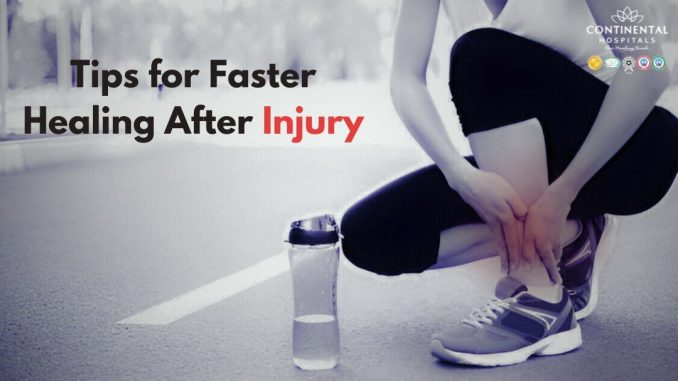
An injury, whether sudden and dramatic like a sports mishap or a more gradual onset from repetitive strain, can profoundly disrupt one’s life, casting a shadow over daily routines, professional responsibilities, and even personal well-being. Beyond the immediate pain, the journey of recovery can be complex, demanding patience, discipline, and a proactive approach to health management. Navigating this period effectively is not merely about passively waiting for a wound to heal; it involves a strategic, multi-faceted commitment to rehabilitation, pain management, and holistic self-care. For individuals in Germany, fortunate to have a comprehensive healthcare system, understanding how to optimally engage with available resources is a key component of a successful recovery, ensuring that a temporary setback doesn’t lead to long-term health complications.
The immediate aftermath of an injury necessitates **prompt and accurate medical assessment**. This is the non-negotiable first step. Do not attempt to self-diagnose or push through significant pain. Seek professional medical attention to determine the extent of the injury, receive an accurate diagnosis, and understand the recommended course of action. This could involve an emergency room visit for severe trauma, a consultation with your *Hausarzt* (general practitioner) for less acute issues, or a direct visit to a specialist like an orthopedist. Early diagnosis is crucial for preventing further damage and initiating appropriate treatment. Following the initial assessment, diligently adhere to all medical instructions, whether it’s immobilizing a limb, taking prescribed medication, or resting. Compliance during this acute phase lays the groundwork for effective long-term recovery.
Once the initial diagnosis and immediate treatment are underway, the focus shifts to **developing a comprehensive rehabilitation plan**. For many injuries, particularly those affecting musculoskeletal systems, rehabilitation is not optional but essential for restoring full function, strength, and mobility. This often involves working with various healthcare professionals. A **physiotherapist (*Physiotherapeut*)** in Germany, for example, will design a personalized exercise program to strengthen weakened muscles, improve range of motion, and retrain movement patterns. This often involves a combination of stretches, strengthening exercises, balance training, and manual therapy. Consistency is key here; diligent adherence to prescribed exercises, even when progress feels slow, is paramount. Additionally, an **occupational therapist** might be involved if the injury impacts your ability to perform daily tasks or work-related activities, helping you adapt movements or modify your environment.
Effective **pain management** is another critical aspect of recovery, not just for comfort but for enabling rehabilitation. While some pain is a natural part of the healing process, unmanaged pain can hinder movement, disrupt sleep, and contribute to stress and anxiety. Work closely with your doctor to establish an appropriate pain management strategy. This might involve over-the-counter pain relievers, prescription medications for more severe pain, or non-pharmacological approaches such as heat/cold therapy, massage, or acupuncture. The goal is to reduce pain to a level that allows you to participate in rehabilitation exercises and maintain a reasonable quality of life without relying solely on medication. Be honest with your healthcare providers about your pain levels and any side effects from medication to ensure the strategy remains effective and safe.
Beyond the physical aspects, an injury often carries a significant **emotional and psychological toll**. Frustration, sadness, anger, and anxiety are common reactions, especially when recovery is slow or interferes with cherished activities. Acknowledging these feelings, rather than suppressing them, is an important part of the healing process. Seek support from your family and friends, communicate your struggles openly, and consider consulting with a psychologist or counselor if emotional distress becomes overwhelming or persistent. Many health insurance plans in Germany cover psychological support, and utilizing these resources can be invaluable for managing the mental health challenges associated with injury recovery. Engaging in mindfulness practices, meditation, or gentle hobbies can also help manage stress and maintain a positive outlook.
Finally, managing your health after an injury is an ongoing process that requires **adapting your lifestyle and embracing long-term prevention**. As you recover, gradually reintroduce activities, listening carefully to your body’s signals and avoiding the temptation to overdo it too soon. Learn from the injury: what were the contributing factors? Can lifestyle adjustments, ergonomic changes at work, or new exercise techniques prevent recurrence? Incorporate proper nutrition to support healing, ensuring adequate protein, vitamins, and minerals. Maintain a healthy weight to reduce stress on joints. Continue with maintenance exercises even after formal rehabilitation ends. This proactive approach to prevention and long-term health management transforms the challenging experience of an injury into an opportunity for greater body awareness and a more resilient approach to well-being.
In conclusion, an injury is more than just a physical ailment; it’s a profound disruption that demands a holistic and strategic response. By prioritizing prompt medical assessment, diligently engaging in comprehensive rehabilitation, effectively managing pain, addressing the emotional and psychological impacts, and embracing long-term preventive measures, individuals can navigate the complex journey of recovery with greater confidence and effectiveness. This proactive commitment to health management transforms a setback into a powerful lesson in resilience, ultimately leading to not just recovery, but a stronger, more informed approach to lifelong well-being.